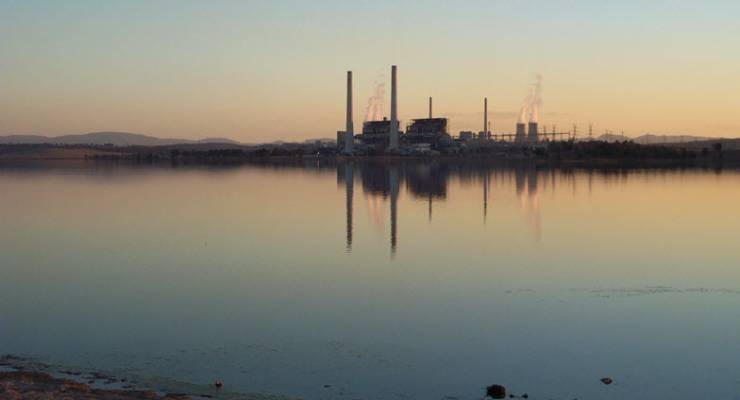
In 2016, the Turnbull government was adamant that two Chinese companies bidding for the NSW government’s electricity distribution network, Ausgrid, should not be allowed to buy the majority stake on offer from the Baird government for national security reasons. Scott Morrison said at the time:
… the foreign investment proposals put to me for this transaction are contrary to the national interest, in accordance with the required provision on the grounds of national security … In particular, during the review process national security issues were identified in critical power and communications services that Ausgrid provides to businesses and governments.
It didn’t matter that one of the bidders, Hong Kong mogul Li Ka-shing’s Cheung Kong Infrastructure, already controlled power networks and a mobile phone provider in Australia, or that the other bidder, State Grid, owned by the Chinese government, had been approved by the government to buy NSW’s power asset Transgrid. Both were apparently a threat to national security.
Since then, the government’s hostility to China has only increased: it is preparing to further restrict basic civil rights and media freedom as part of a legislative package cracking down on Chinese influence. In February it announced “All future applications for the sale of electricity transmission and distribution assets, and some generation assets, will attract ownership restrictions or conditions for foreign buyers.”
So, China bad. Chinese investment in power assets, very bad.
Except, of course, if you’re in a deep political hole on energy policy caused by denialists and destabilisers on your backbench. Then, apparently, China is just fine.
The government wants the owner of the ancient Liddell power station in NSW, AGL, to sell it instead of closing it in 2022. And in a quite extraordinary act of desperation, Malcolm Turnbull phoned the chair of AGL to spruik a bid by Alinta, then later made threatening noises about the need for the AGL board to properly consider it. The Alinta interest is at least from an energy company. The previous expression of interest for Liddell was from a Chinese textile company, Shandong Ruyi. That came to nothing, before the ink spruiking it in the pages of The Australian had even finished drying.
But who owns Alinta? Since last year, Alinta is owned by Chow Tai Fook Enterprises, a Hong Kong-based conglomerate best known for its Chinese jewellery store empire. Chow Tai Fook and its jewellery business was the primary vehicle of Hong Kong property developer and one of Asia’s richest men, Cheng Yu-tung, who died in 2016. Via Chow Tai Fook, Cheng also founded and controlled the Chinese property and infrastructure giant New World Group.
And according to the New York Times, Chow Tai Fook and Cheng Yu-tung’s family have close connections with the Chinese Communist Party elite. A 2012 NYT investigation of the family wealth of then-Chinese prime minister Wen Jiabao, which was blocked by the Chinese government, reported
Another wealthy partner of the Wen relatives has been Cheng Yu-tung, who controls the Hong Kong conglomerate New World Development … In the 1990s, New World was seeking a foothold in mainland China for a sister company that specializes in high-end retail jewelry. The retail chain, Chow Tai Fook, opened its first store in China in 1998. Mr. Cheng and his associates invested in a diamond venture backed by the relatives of Mr. Wen and co-invested with them in an array of corporate entities … Those investments by Mr. Cheng are now worth at least $5 billion, according to the corporate filings. Chow Tai Fook, the jewelry chain, has also flourished. Today, China accounts for 60% of the chain’s $4.2 billion in annual revenue.
The government apparently wants Cheng’s family, and his company, to take over Liddell. True, Liddell’s only a generator, not a transmission or distribution company, which poses far more systemic risk. But the government itself said ownership of generation assets could also be a national security issue. Evidently Chinese ownership of infrastructure is only a national security issue when this chaotic government isn’t so utterly desperate that it will seize on any political lifeline that comes its way.








It is a nitwitt idea now as at all other times. Any nation which allows foreign ownership of major vital infrastructure such as the power grid is run by morons, especially potential enemy ownership. Why Alinta would want to buy Liddell is a mystery so one suspects a crooked deal, or some kind of new donation.
Thanks Bernard, your digging in to the the recent Chinese owners of Alinta reveals the shabby hypocrisy of this Govt. Isn’t this what we seek from journalism?
3 of the 4 Liddell power generators were commissioned by 1972. AGL planned to exit them by 2022, 50 years later. Like many of Oz coal fired power generators, I understand they are well past their operational ‘Use By’ date, and overseas countries decommission their coal fired power plants well before 50 years.
So in comes Alinta, with Turnbull saying today the power plant is good for a few more years. Short term, hypocritical, contradictory, and politically opportunist … no surprises there, standard LNP approach. Pass the oxygen, please.
A nice, brief and pertinent article BK.
It’s almost as if this government is morally & ethically MIA and dumb as a sack of rocks. Or utterly corrupt.
Oh, wait…